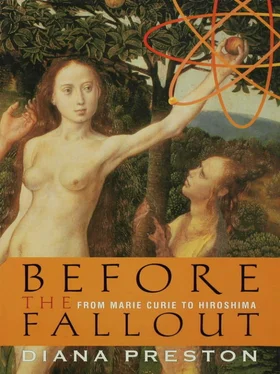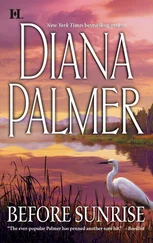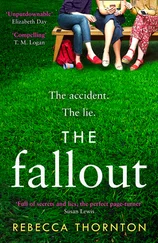• • •
Chadwick’s reaction to the discovery of uranium fission had initially been low-key. He was not convinced that there would be “any interesting consequences from it” and that “if something could be done with it, it would be a technical development rather than a search for new physical facts.” His views were shared by the majority of the scientific community in Britain, despite sensational articles in the press speculating about an awesome and dreadful new weapon.
In October 1939 Edward Appleton, a former colleague of Chadwick’s at the Cavendish and newly appointed secretary of the Department of Scientific and Industrial Research, asked Chadwick privately for his views. Chadwick replied that although a device was theoretically possible, the process was complicated and he doubted its feasibility. He had studied Bohr’s and Wheeler’s conclusions carefully. Their theory that fission by slow neutrons was entirely due to the rare isotope U-235 not only showed that any chain reaction in ordinary uranium would require huge amounts of the metal—perhaps tons—but also implied that this requirement was, in itself, an obstacle. To create a chain reaction, the neutrons would have to travel long distances, seeking out the sparse U-235 atoms and causing the whole process to unfold too slowly. As energy was released, the uranium would heat up and evaporate before the chain reaction had gone very far. Even if a chain reaction was achievable, it was highly unlikely to lead to a bomb. Nevertheless, Chadwick promised Appleton he “would think about it again.”
In late November Rotblat summoned up sufficient courage and grasp of English to present in detail to Chadwick his plans for research on the feasibility of an atom bomb. Recognizing that slow neutrons would not cause the immediate and catastrophic conditions required for an explosion, he argued that the chain reaction must be triggered by fast neutrons instead. At the end of his presentation his mentor, who had remained silent, gave a response that was typically Chadwickian. As Rotblat recalled, “He just grunted,” leaving Rotblat discouraged by his reaction. In fact, his views had melded with Chadwick’s own evolving opinions. As Chadwick later wrote: “It was only the direct impact of war which made me put my mind to such questions. I then saw how simple the problem of producing a violent explosion really was, provided that a suitable material existed… which would support a chain reaction with fast, not slow neutrons, so that a substantial part would react, and release large amounts of energy, before the system had time to fly apart.”
Chadwick came back to Rotblat and asked, “What sort of experiments do you want to do?” Rotblat told him and began exploring such critical but unknown areas as the energies of neutrons generated by fission and the proportion of neutrons that would be absorbed by other nuclei without producing fission. By then half of Chadwick’s team had been diverted to classified radar work, from which Rotblat, as a foreigner, was barred, and research assistants were thin on the ground. Rotblat was assigned a young Quaker called Flanders to help him. As a conscientious objector, Flanders had been sent to the university instead of being drafted into the army. Rotblat wondered whether he should tell his assistant that he was working on research with possible military applications, but Chadwick had ordered him to divulge nothing of the work’s true purpose and Rotblat reasoned that the experiments had independent scientific validity. After the war he discovered that Flanders had “guessed something was going on,” so in a sense “we were both deceiving each other.”
Chadwick meanwhile reported to Appleton his revised conclusions that “it seems likely” that fission “could be developed to an explosive process under appropriate conditions.” These disturbing views prompted the government to unite all uranium and fission research under the Air Ministry. This included not only Chadwick’s work but also experimental work conducted by George Thomson at Imperial College in London and at Birmingham University under Rutherford’s former pupil, the Australian Mark Oliphant. All information would be reviewed by the Air Defence Research Committee, chaired by Sir Henry Tizard, the rector of Imperial College. By the spring of 1940 Tizard and his commitee were still uncertain whether nuclear research would be valuable to the war effort. However, a note forwarded by Mark Oliphant, from two émigré scientists in his department, changed everything. One of them was Otto Frisch. The other was the Berlin-born mathematical physicist Rudolf Peierls. Just like Rotblat, they believed an atom bomb was possible. Also like him, they had arrived at the idea of nuclear deterrence.
• • •
Rudolf Peierls had originally come to England in 1933 to spend the second half of a Rockefeller scholarship at the Cavendish Laboratory in Cambridge, having spent the first half with Enrico Fermi in Rome. He and his ebullient Russian physicist wife, Genia, had adapted quickly to English life, pleased that the rules of polite behavior were “much less rigid” than in Germany, although the food was rather a shock. With characterisic humor, Peierls devised “a theory of the typical English boarding-house food: it would be undemocratic for the cook to impose his or her taste on the guests, so things are boiled until only a neutral matrix remains, to which the guest can give any flavor by adding salt, pepper, horseradish, mustard, ketchup, and so on.”
As Peierls’s fellowship drew to an end, he had looked anxiously for a job in England. As he was learning from every letter mailed to him from Germany, Jewish academics were being thrown out of their jobs, and, as a Jew himself, Peierls knew he no longer had a future there. His wife’s pregnancy added to his personal worries, but he still did what he could for others. When he saw a junior post at Cambridge advertised, he applied himself but generously sent a telegram to Hans Bethe in Germany, suggesting he also apply. As it turned out, neither man was appointed. However, Lawrence Bragg, a professor at Manchester University, came to Peierls’s rescue with a two-year grant from a fund similar to that set up by the Academic Assistance Council, which Rutherford was then spearheading. The grateful Peierlses moved north with their new baby daughter and were soon joined by Hans Bethe when he came to England, and they offered him a room in their “damp and icy” house.
In 1935 Rudolf Peierls was offered an appointment at the Mond Laboratory in Cambridge, originally built for Peter Kapitza to conduct his magnetism and low-temperature experiments. The money allocated for Kapitza’s salary was unused, and Ernest Rutherford had persuaded the Royal Society to award Peierls a research fellowship. Then, in the spring of 1937, Mark Oliphant suggested he apply for a mathematics professorship at Birmingham University. He was successful and at last had the security of a permanent appointment. The Peierlses celebrated by buying an old car for twenty-five pounds and learning to drive. Their peripatetic life appeared to have ended.
In 1939 Otto Frisch turned up in Birmingham. The Nazi invasion of what remained of Czechoslovakia in March 1939 had made him uneasy about remaining in Copenhagen and, in his own words, “in a state of complete doldrums,” believing war was coming and fearing that nothing he did would be any good. He was also depressed, fighting “a pretty strong presentiment” that he had only a few months left to live. This prompted him for “the only time in my life” to take “some initiative.” When Mark Oliphant visited Copenhagen, Frisch appealed to him, confessing his fears that Denmark “would soon be overrun by Hitler” and asking “would there be a chance for me to go to England in time, because I’d rather work for England than do nothing or be compelled in some way or other to work for Hitler or be sent to a concentration camp.” A “very sympathetic” Oliphant said, “You just come over in the summer. We’ll find you something to do. You can give a few lectures or something.” Frisch arrived in July 1939 with two small suitcases, and the Peierlses took him under their wing. Rudolf Peierls particularly admired Frisch’s talent “to ponder until he could present a problem in a form that admitted of a solution, the mark of a real physicist.” Their mutual talents were about to combine.
Читать дальше












